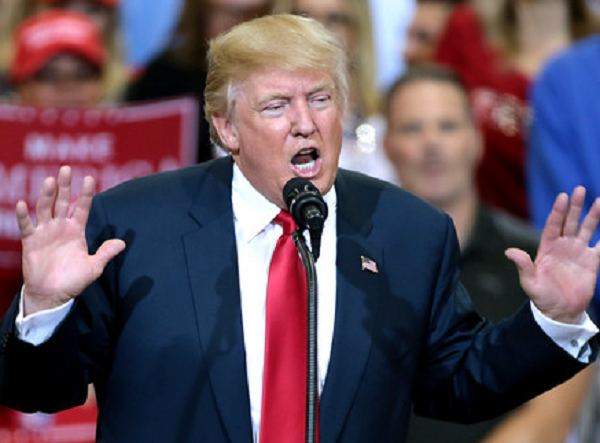The focus is currently on the upcoming 2024 presidential campaign and the legal proceedings involving former President Donald Trump in relation to the events of January 6th. However, there is another significant case that could have a greater impact on Special Counsel Jack Smith’s prosecution of Trump.
The case in question is Joseph W. Fischer v. United States, which the Supreme Court agreed to hear in December. Although it does not directly mention Trump, it is highly relevant to the ongoing legal proceedings. The case revolves around Joe Fischer, a defendant charged on January 6th, and raises the issue of whether the Department of Justice and prosecutors have been misusing a law enacted in 2002 to punish financial crimes. If the court rules in favor of Fischer, it could cast doubt on the applicability of this law to other defendants connected to the events of January 6th, including Trump.
Smith’s indictment against Trump consists of four counts, including two counts of conspiracy to obstruct an official proceeding and one count of actual obstruction. These charges fall under the Sarbanes-Oxley Act, also known as the “SOX” Act, which was passed in response to the Enron scandal and governs financial disclosures. Obstructing a U.S. government official proceeding is considered a felony under this act.
It is worth noting that more than 300 individuals have been charged with involvement in the January 6th insurrection, with over 150 of them either pleading guilty or being found guilty by a jury. However, some defendants, including Fischer, argue that the “obstruction of an official proceeding” provision of the SOX Act was intended to apply specifically to financial crimes, rather than being used as broadly as the Justice Department has interpreted it in the January 6th cases, as highlighted by Politico.
The issue of whether the obstruction provisions of the SOX Act apply to the various methods individuals used to prevent Congress from investigating and approving the Joe Biden-favored presidential election results has been a subject of contemplation for courts across the nation. Currently, the DOJ’s interpretation of the matter has garnered support from fourteen judges in twenty-two cases.
However, with the Supreme Court’s decision to review Fischer’s case, some individuals have expressed their reservations. Furthermore, trial judges have delayed the sentencing of the defendants in two cases related to the events of January 6th, anticipating the Supreme Court’s ruling. This could potentially lead to challenges against the underlying charges of the SOX Act.
If the Supreme Court were to dismiss half of Smith’s charges against Trump before the conclusion of its term in June, the impact of Fischer on the January 6th trial might remain uncertain. Additionally, it could cast doubt on the convictions of numerous insurgents currently serving sentences for their involvement in the events of January 6th.
Several conservative justices on the Supreme Court identify as “textualists,” who interpret laws in a literal manner. To such a reader, the SOX Act would likely appear straightforward. It is worth noting that President George W. Bush, in 2002, praised the “strengthening of laws that criminalize document shredding and other forms of obstruction of justice.” This reference was made in a White House press release, highlighting the significance of the statute.
The term “official proceeding” is further defined in another statute to include “a proceeding before the Congress.” Hence, the legal process of counting the presidential electoral votes in accordance with the Constitution and the Electoral Count Act commenced on January 6th in Congress. In this scenario, corruption, indicating that Trump was aware of his actions and had an unlawful intent, pertains to the various measures he undertook to impede that process.
This is where the situation becomes complex. A person who “corruptly alters, destroys, mutilates, or conceals a record, document, or other object… with the intent to impair the object’s integrity or availability for use in an official proceeding” is also committing a criminal offense, as per another provision of the SOX Act that follows this statement.
Fischer contends that the two sections of the statute should be interpreted together, with the earlier, more specific provision constraining the scope of the broader phrase “or otherwise obstructs” in the subsequent, more detailed part of the statute, and that the term “corruptly” acts as a link between the two.
Under this interpretation, in order to accuse the defendants of obstructing a congressional proceeding in a broader sense, Smith must first prove that they “corruptly” altered a record. The argument follows that the statute does not allow for a separate charge of obstruction of an official proceeding based on actions such as trespassing on the Capitol building.
Nonetheless, he could include allegations that the defendants “otherwise” engaged in other similar forms of obstruction using records or documents. Although none of the three defendants—Fischer, Edward Lang, and Garrett Miller—are directly accused of handling records or documents, they are all accused of participating in the events of January 6.
The U.S. Court of Appeals for the D.C. Circuit reversed the ruling of the lower court in favor of the defendants, arguing that the language of the SOX Act is expansive enough to cover their behaviors. If the Supreme Court determines that the obstruction charge is limited to documents or records, Smith’s case against Trump and numerous convictions from January 6 may be at risk.

